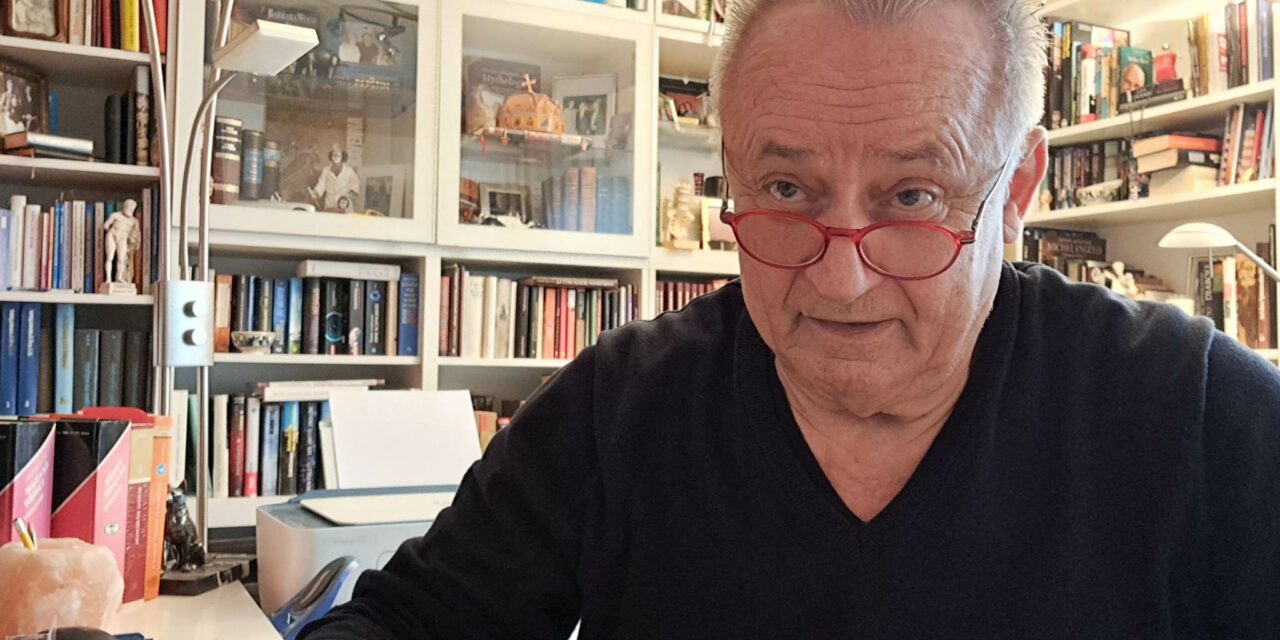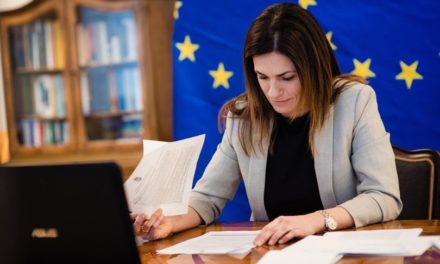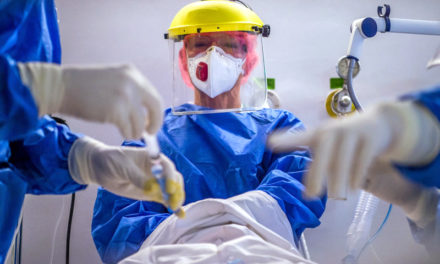We talked to Gábor Túri, a Hungarian doctor living in Germany, about the history of his emigration linked to the Chernobyl disaster, the world of German "white bread", the lost media pluralism and the fact that eating bugs is not primarily problematic because of disgust. Interview by Szilvia Polgári.
When and why did you decide to emigrate?
in 1986, but this decision was preceded by other decisions, the first being whether to become a doctor or an artist. I played the piano, sang in choirs, and it was a big deal at the time that I even got to perform abroad. I was lucky to be able to perform with my choir even at the Academy, I was able to meet Zoltán Kodály; these are very nice memories.
Did you graduate from university in Hungary?
Yes, in Budapest. After that came the second decision, should I become a pediatrician or a general practitioner? I first worked in Mosonmagyaróvár, in the neonatal ward, then I decided to become a general practitioner. I was very interested in what it was like to follow someone from birth to death. That's how I ended up next to Dunaújváros, as a district doctor in a large village, and eventually became a leading district doctor. Around this time, the Scientific Association of Hungarian General Practitioners was founded, which I also joined. I was appointed city and district secretary, then Fejér County deputy secretary, and finally there, I became the secretary of the young doctors. I edited a newspaper, at that time, in the early eighties, this was also a big word, because you needed a permit for everything, but I received support from the local management of the village. But there were also negative voices, as I did not forget about the history of origin, the Székely people or the Hungarian-Avar relations, and I also read my writings, I had more and more students in the village, and not everyone liked that. It was even more unpleasant that I organized a fundraiser among the county district doctors for the construction of the National Theater, and then took the money raised to Hilda Gobbi. That's when my authority exploded in the eyes of the political leadership, but it all peaked in 1986, after the Chernobyl disaster.
What happened?
Hungarian politics, including the press, did not give any information about the tragedy, it was called foreign horror news, but I listened to German radios and learned from them what isotopes were in the cloud, so I started distributing iodine to my patients with the help of the pharmacist there.
Not long after, the police phone came to tell me not to riot anymore, because this is anti-state activity.
After some delay, they were forced to admit what had happened.
About a week later, yes, but from a medical point of view, the decision had to be made then, because if I gave the natural iodine later, it would not have made much sense.
Was that the main reason for leaving?
That, and one more history. Our Science Association had a meeting in the party center in Budapest, where I was able to give a short speech in which I criticized the gratuity and asked for its abolition. I said that parasolvency is humiliating for both the patient and the doctor. For the latter, in the sense that although at first he may be happy about it, but then a conditioned reflex of expectation develops and he begins to categorize the patients, depending on who gives how much.
We only have forty years to wait for its release.
Better late than never. But at the party headquarters, just as I was presenting my proposal, János Kádár came in with a cigarette in his hand and heard me say that the salary of doctors should be increased because it is so low that they are scrambling for gratuities. However, those who accept it after that should be banned from their profession for one year.
What was the reaction?
Kádár stood up and said that "I see that the west wind has come in here as well", and then went out. A week later, I got a call from the Dunaújváros couple's committee, even though I wasn't a party member, asking what I was talking about, I should join the party. I refused this saying that I was not mature enough for it.
What was waiting for you in Germany?
Since I am from Budafoki and one of my maternal grandparents comes from a Swabian family from Banát, I thought I would be able to fit in, but I was hugely disappointed, I was faced with the fact that the Germans had become a completely rootless people. Even then, they wanted to be world citizens, forgetting about their own history. But I experienced this not only in the political field, but also in art.
Where you worked?
In the hospital, at first without a fee, but I had side jobs, the two children had to be fed. Then I naturalized my diploma, passed the general medical examination and opened my own practice in Frankfurt in 1989. A private practice. But German healthcare is not as perfect as many people think. The budget is strict, it is determined how long each examination must be carried out, and what the fee is.
How did you understand that rootlessness was also present in the arts?
For me, art has always meant beauty and comfort. Let me quote Carsten Brosda, Hamburg's senator for culture, who said in 2017, when he was elected, that "culture should be a deterrent, it should present the harsh and cruel reality".
Three years later, he said that "art can cause pain... With all its brutality, it must show that something is wrong", and this SPD politician added that "the protest of right-wing offended circles against theaters or socio-cultural institutions is dangerous for for the freedom of art. These right-wing groups are trying to bring a certain understanding of national identity into art and culture… so that culture can fix something it might not be able to fix…”.
In 2020, he then said: "Art does not have to be neutral, so the AfD's demand that art be neutral must be rejected..." And even to this he added the left-liberal idea that
"the desire to make free expression impossible by banning and suppressing thoughts, speech or events is frightening".
The reality, however, proves the opposite, because it is precisely because of the liberal left that one cannot speak freely, so much so that even German comedians only occasionally dare to go into sensitive topics.
What does the fragmentation of the arts mean in practice?
We recently saw, for example, Tchaikovsky's Swan Lake, performed by the Royal Danish Ballet. And it shocked me. The performers dressed as ducks danced while walking on their heels, and then during the famous love scene, standing opposite each other and moving their hips, they "communicated" on stage. I think that's what disintegration means.
You didn't go into politics?
No, not apart from a few professional articles. In my eyes, this country has lost ground and it appalls me how biased it is against other points of view. As soon as a politician - be it from the Linke or the AfD - speaks like a white raven and says something sensible, he is immediately branded a fascist or an anti-Semite.
The latter label is absolutely mandatory when it comes to denigration, because no one dares to face it, and if they do, anti-Semitism is seen as justified.
How does society handle this?
It practically split in two. To give an ordinary example, I was just at the hairdresser's, with a nice old German, and while they were waiting, the men talked only about what they heard on TV. The situation is different face to face, then they tell you what they really think. These people are cowards. Five years ago, there were four hairdressers in our small town, now they are multiplying like mushrooms, but they are all Turkish or Arab. However, a German does not go with them.
But there, like in an Istanbul coffee house, they already express their own opinion, quite loudly. A German dare not do the same in public.
How long will it last?
I have confidential acquaintances, they say that the German is not a coward, but endures for a while and then explodes. Whether this will happen or not, I don't know, but what Scholz or Habeck or Annalena Baerbock are doing are not normal things. When a right-wing politician speaks his mind in the Bundestag, he only receives laughable responses from the ruling parties.
What about the German economy up close?
Pensions will be increased by 3.5 percent from July 1, and by 4.5 percent in the east. Inflation, on the other hand, although officially only 7-8 percent, is actually much higher. I will give a concrete example, we experience it on our own skin. Last year, we spent 826 euros on food in the first quarter, i.e. before the war, which became 1,342 euros in the second quarter, so that we had already tightened our belts, so on an annual basis, 5,000 became 6,500 euros, which is a 30 percent increase. The utilities for our 100 square meter apartment increased from 315 euros to 515 euros per month, an annual increase of 2,400 euros, which is 63 percent, but this does not include electricity and telephone.
Voices could be heard that the impoverishment of German pensioners is a conscious policy on the part of the Greens. This is true?
I do not know. The Greens are going after the American Greens, and I can't even assume that Annalena Baerbock, for example, can intellectually comprehend what they are doing to the country. He had only been in his position for three days when he invited Jennifer Lee Morgan, the American environmental activist who previously headed Greenpeace International, and since then Morgan has been the State Secretary of the Ministry of Foreign Affairs in Berlin and the special representative responsible for international climate policy. But he wasn't even a German citizen! But they were Germanized in an accelerated procedure. The strong influence of the Greens in Germany can be traced back to such reasons.
What about immigrants?
They live like Marci Hevesen. They also receive Hartz-IV, which is also known as unemployment benefit-2 or social assistance, but since January 1 this year it has been renamed "citizen's income" (Bürgergeld) to make it sound better. A single person receives 502 euros, his partner, who is also of legal age, 451 euros. After the children, depending on their age, they receive 318-420 euros per person,
a family with three children thus receives a benefit of over 2,000 euros. In contrast, a pensioner receives 1,000-1,200 euros, my wife, for example, who worked as a health worker all her life, a total of 650 euros.
Isn't that humiliating for the Germans?
Of course! They don't talk about it openly. And that's not all, as an additional benefit, the state pays for the apartment rent, heating, one trip home per year, sports and club membership fees, tutoring, school equipment, a monthly travel pass, which in Frankfurt, for example, is 162 euros, so it's not a small amount, class trips, and so on.
Behzad Karim Khani, an Iranian writer living in Germany, notes that "we migrants are the heirs of this country." What do the Germans say about this?
It didn't get that much publicity here, but anyone who deals with the subject knows about it. And that they will inherit the country is clear, as German families have on average one and a half children, and one or two dogs. But if you go to the county administrative center, there are 4-5 children walking next to their mothers, who are pushing strollers. And none of them are native Germans. In light of this, calculate who and how the state supports. So these things cause tremendous tension.
Therefore, "white breads" do not need to be eradicated, as Axel Steier, the founder and president of Lifeline - who himself is German - envisions, because they will run out on their own.
Khani: Migrants will inherit Germany after its population dies out
For example, Özdemir, the Minister of Economy, is of Turkish origin and talks about the need to reduce meat production. This is a nice, green idea, but which meat do you think it affects to the greatest extent, 40 percent?
The pig?
Exactly. Because they are not looked on favorably in Muslim families. In this way, they almost force the Christian population to eat other types of meat, or in the case of worms, which are ground into flour and various types of pasta.
And I am extremely against this, primarily because of chitin, which our intestinal system cannot digest. Studies would be needed to see what long-lasting side effects we can expect.
For my part, it is certain that I will not eat worms, although it is a fact that in the countries of the Far East this is considered an established dietary habit, but that they do not eat it is certain. However, it is incomprehensible to me why our culture has to switch to eating bugs and worms. We should rather improve the quality of the meat and eat much less.
What about the media?
Media diversity has practically disappeared in Germany. Perhaps the interested party can find out about other opinions in online newspapers, and it is ironic that the mainstream accuses the Hungarian press of what they themselves have committed against versatile information. The position of Udo Ulfkotte, who was a journalist at the Frankfurter Allgemeine Zeitung and was removed from it, then published his book "Gekaufte Journalisten" (Bought Journalists), is undisputed. According to him, "newspapers manipulate us for the benefit of the powerful."
In any case, if there is a change, it will probably come from the former GDR side, because they still know how to read between the lines.
The West German is comfortable because he inherits the money, does not earn it, travels, and has nothing to do with politics. Yet he wants to say what should happen in Europe from a moral high ground. Goethe was right when he said that "no one is so hopelessly enslaved as those who mistakenly think they are free."













